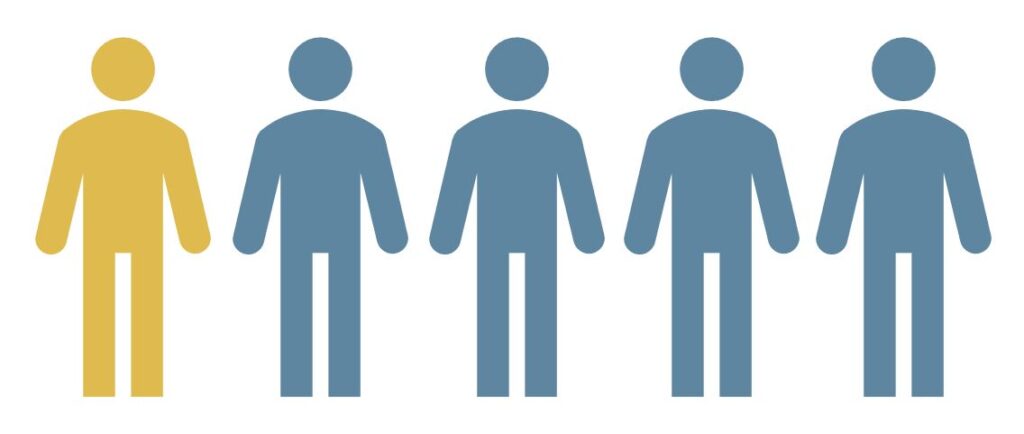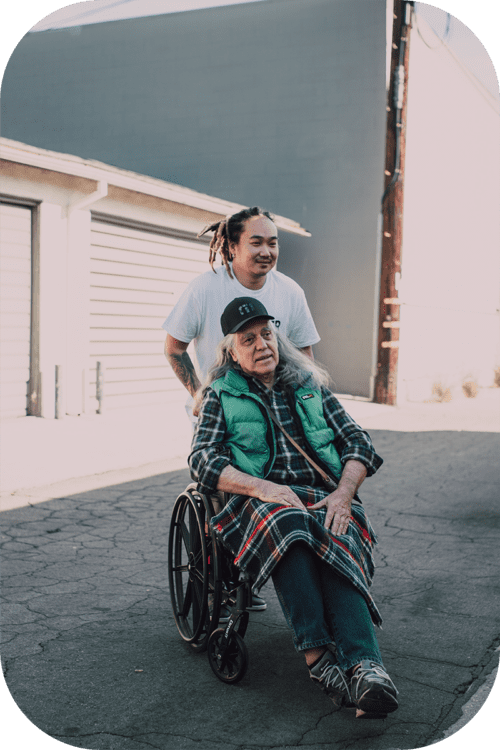May 10, 2023
The Public Health Emergency enabled many family caregivers to be paid to support a loved one. But this provision may end in many states.
There is a national shortage of caregivers (and even fewer family caregivers). 52% of people age 65 and older require some form of long-term care. And this number will continue to increase as the aged population grows, outnumbering available caretakers. It’s projected that the need for caregiving jobs will grow by about 25% by 2031.

Meanwhile, wages and benefits for direct care workers have lagged. Turnover is high, with half of caregivers leaving the role within a year. This is part of the reason that one in five Americans provided unpaid care to an adult with needs. AARP estimates that across the U.S., family caregivers provide over $600 billion in unpaid care.
A 2020 report showed that 51% of caregivers feel their role has given them a sense of purpose or meaning. It’s an important, dignified, and sometimes thankless role.
The Pandemic’s Effect on Caregivers
Most waiver programs allow for some family members to provide care for a loved one. But only about half allow for self-direction — the ability to choose who supports you with intimate care needs. Even in self-directed programs, immediate or close family members such as spouses, parents, or children are often restricted. Some states allow certain family members to provide care, but not others. And some states don’t allow relatives to provide paid care at all. This is because there is a belief that they’re more likely to commit fraudulent activity. Some people also believe that family members shouldn’t be paid for work they are already responsible for doing.
With the COVID-19 pandemic, many people wanted to limit potential exposure to the virus. A lot of families brought loved ones into the family home from congregate settings because they were no longer safe. Others faced the difficult choice of whether or not to allow outside caregivers into the home. To make things worse, many caregivers left the workforce.
As a result, around 39 states created temporary changes to the rules relating to provider qualifications. These changes were made using Appendix K of the 1915(c) waiver. Because of this, many family members were able to be paid to care for a loved one in states where they previously couldn’t. This change relieved a burden on multitudes of families. They were able to give their loved ones the care they needed while also staying safe. And for many, this also became their employment.
Who are family caregivers?
A family caregiver is a person who assists a relative with short- or long-term limitations.
Most commonly, family caregivers include:
- Parents of a child with a disability
- Children of aged or disabled parents
- Spouses
But they can also include:
- Siblings
- Aunts/Uncles
- Cousins
- Other close relatives

What do family caregivers do?
Family caregivers provide the same services as any other support person. Bathing, preparing meals, wound care, transportation, and more are all things a family caregiver can do. But they do more than just that. They’re also parenting, advocating, coordinating, and more. They may even be working another job in addition to providing care.
The video below is one day in the life of Melissa from Minnesota. She provides care for her son, Christopher, who was born with a rare disease called PMM2-CDG. Melissa breaks down her entire day from start to finish as a paid parent of a minor in Minnesota’s CDCS Program.
Family caregivers work hard every day to provide for the needs of their family. In many situations, they are the best option to provide care, because they know their relative the best.
According to research, self-directing participants were up to 90% more likely to be very satisfied with how they led their lives. Using self-direction significantly reduced their unmet personal care needs.
Family Caregivers in a Post-Pandemic World
States with temporary provisions must establish permanent amendments to Home- and Community-Based programs to allow for family caregivers after the end of the Public Health Emergency. But currently, only about half of all states are planning to do so. This means thousands of family caregivers could lose their pay.

The caregiver shortage has continued to grow in the three years since the Public Health Emergency began. And it will continue to worsen, making finding a suitable caregiver challenging. Training a new caregiver can be hard and time-consuming for these families who are already stretched thin. The caregiver labor shortage impacts agency-directed care even more. These factors lead to financial hardships, stress, and strain for people with disabilities and their families.
The last three years have verified that family caregivers can be an effective, safe solution. Research and data shows that fraud in self-directed care is not a widespread issue. Family caregivers are subject to oversight by a case manager, including in-home visits, like any other care provider. The system has checks and balances, and they’ve been proven to work.
Who would you hire for a job? Any job that you’re looking for, you should hire the best candidate. And that’s a family caregiver.
Melissa Schlemmer and Holly Carmichael
Our CEO, Holly Carmichael, recently sat down with Melissa for a candid conversation. They discuss the realities of the caregiving crisis, the stigma faced by being a paid parent of a minor, and more.
Live Discussion: Family Caregivers on the Front Line
We spoke on this topic at the HCBS Conference held in Baltimore, MD in August 2023. You can view a recording of this presentation below.
Learn More About Family Caregiving
Do you want to provide care for a family member — or, want to hire a family member to care for you — but aren’t sure if your state allows it? We recommend contacting your local Department of Human Services. Or, reach out to us directly and we’ll help connect you.
